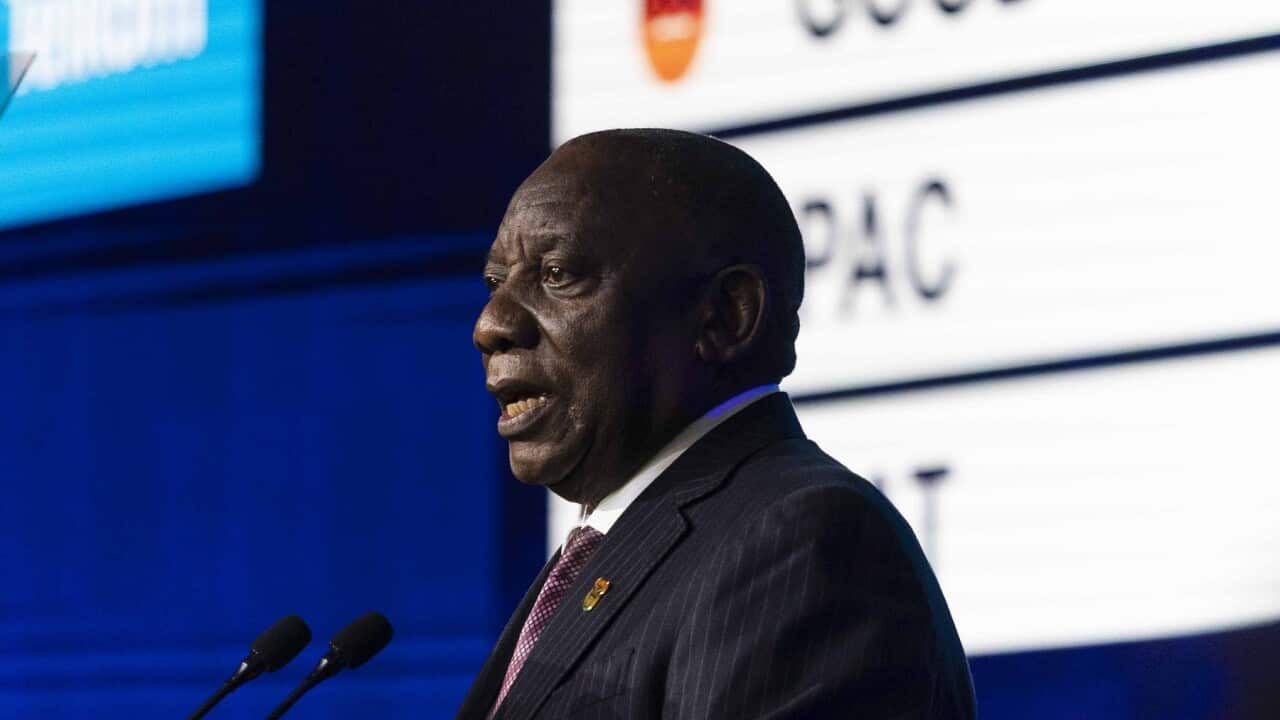TRANSCRIPT
The African National Congress party has dominated South African politics for the past 30 years, since it took power at the end of apartheid.
But now, the final results of the latest national elections have returned a landmark result: it's lost its majority, with voters turning away because of economic stagnation, high levels of income inequality, regular power outages, and corruption within the party.
ANC Secretary General Fikile Mbalula says the party has slipped to 40 per cent of the vote, down from 57.5 per cent in 2019.
"While the ANC has won the most votes in this election, the results show a significant decline in the ANC's support from previous elections. While there are several factors that have contributed to the decline in support, the results send a clear message to the ANC. We wish to assure the people of South Africa that we have heard them. We have heard their concerns, their frustrations and their dissatisfaction."
The Independent Electoral Commission says the ANC secured 159 out of 400 seats in the National Assembly in the country's 2024 general elections.
The main opposition party, the Democratic Alliance, came second with 87 seats.
The result means that the ANC must share power, likely with the Alliance.
Ongama Mtimka is a political analyst.
"The ANC is significantly on the back foot but remains the dominant player and no coalition is going to be formed basically that is sustainable without them. They are positioned best to form a coalition."
South Africa's President Cyril Ramaphosa is calling on all the parties to find “common ground” to form the first national coalition government in the country's young democracy.
"Our people have spoken, whether we like it or not, they have spoken. As the leaders of political parties, as all those who occupied or occupy positions of responsibility in society, we have heard the voices of our people and we must respect their choices and their wishes."
The ANC was established in 1912 as a response to apartheid.
Its paramilitary wing, Umkhonto we Sizwe, commonly known as MK,was formed in 1961 to launch an armed resistance against the apartheid system.
It carried out several attacks, including the 1983 bombing on Church Street in Pretoria, a car bombing that resulted in the deaths of 19 people and injuries to over 200 others.
MK are now vowing to "take power back" for former president and party leader Jacob Zuma.
Its head of security in KwaZulu-Natal province, Sizwe Zungu, says the party would not be provoked into violence but stood ready to fight for the country it had helped liberate.
“This is our forefather’s land. We will fight and die for it. But we said as MK we are a peaceful organisation. We want to see peace and we will not fall on their trap because they want to see the country burning. We will not burn this country. We love our country. And we will not fall in their trap because they want to declare a state of emergency in order for this process to not go forward. Our people, they will not fall on that trap. And we will tell our people, 'Don’t do something (that) will make them (the African National Congress party) happy. We will fight our battle through the good laws.”
But Mr Mbaula is calling on South Africans to remain calm as the ANC enters coalition talks to try to remain in power.
"We call on all South Africans to resist the efforts of those forces who want to weaken our democracy, who want to undermine our electoral processes, and who want to disregard the will of the people. As a nation, we will stand together against those who threaten violence and instability. The people of South Africa, as they have shown in the past, will not tolerate any threats to our democracy."













